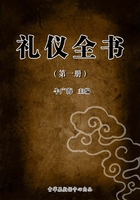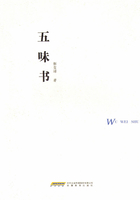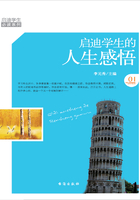Together with the new conscription act, the President approved on February 17, 1864, a reenactment of the tax in kind, with some slight concessions to the convenience of the farmers. The President's appeal for a law directly taxing slaves and land had been ignored by Congress, but another of his suggestions had been incorporated in the Funding Act. The state of the currency was now so grave that Davis attributed to it all the evils growing out of the attempts to enforce impressment. As the value of the paper dollar had by this time shrunk to six cents in specie and the volume of Confederate paper was upward of seven hundred millions, Congress undertook to reduce the volume and raise the value by compelling holders of notes to exchange them for bonds.
By way of driving the note-holders to consent to the exchange, provision was made for the speedy taxation of notes for one-third their face value.
Such were the main items of the government program for 1864.
Armed with this, Davis braced himself for the great task of making head against the enemies that now surrounded the Confederacy. It is an axiom of military science that when one combatant possesses the interior line, the other can offset this advantage only by exerting coincident pressure all round, thus preventing him from shifting his forces from one front to another. On this principle, the Northern strategists had at last completed their gigantic plan for a general envelopment of the whole Confederate defense both by land and sea. Grant opened operations by crossing the Rapidan and telegraphing Sherman to advance into Georgia.
The stern events of the spring of 1864 form such a famous page in military history that the sober civil story of those months appears by comparison lame and impotent. Nevertheless, the Confederate Government during those months was at least equal to its chief obligation: it supplied and recruited the armies. With Grant checked at Cold Harbor, in June, and Sherman still unable to pierce the western line, the hopes of the Confederates were high.
In the North there was corresponding gloom. This was the moment when all Northern opponents of the war drew together in their last attempt to shatter the Lincoln Government and make peace with the Confederacy. The value to the Southern cause of this Northern movement for peace at any price was keenly appreciated at Richmond. Trusted agents of the Confederacy were even then in Canada working deftly to influence Northern sentiment. The negotiations with those Northern secret societies which befriended the South belong properly in the story of Northern politics and the presidential election of 1864. They were skillfully conducted chiefly by Jacob Thompson and C. C. Clay.
The reports of these agents throughout the spring and summer were all hopeful and told of "many intelligent men from the United States" who sought them out in Canada for political consultations. They discussed "our true friends from the Chicago (Democratic) convention" and even gave names of those who, they were assured, would have seats in McClellan's Cabinet. They were really not well informed upon Northern affairs, and even after the tide had turned against the Democrats in September, they were still priding themselves on their diplomatic achievement, still confident they had helped organize a great political power, had "given a stronger impetus to the peace party of the North than all other causes combined, and had greatly reduced the strength of the war party."
While Clay and Thompson built their house of cards in Canada, the Richmond Government bent anxious eyes on the western battlefront.
Sherman, though repulsed in his one frontal attack at Kenesaw Mountain, had steadily worked his way by the left flank of the Confederate army, until in early July he was within six miles of Atlanta. All the lower South was a-tremble with apprehension.
Deputations were sent to Richmond imploring the removal of Johnston from the western command. What had he done since his appointment in December but retreat? Such was the tenor of public opinion. "It is all very well to talk of Fabian policy," said one of his detractors long afterward, "and now we can see we were rash to say the least. But at the time, all of us went wrong together. Everybody clamored for Johnston's removal." Johnston and Davis were not friends; but the President hesitated long before acting. And yet, with each day, political as well as military necessity grew more imperative. Both at Washington and Richmond the effect that the fighting in Georgia had on Northern opinion was seen to be of the first importance. Sherman was staking everything to break the Confederate line and take Atlanta. He knew that a great victory would have incalculable effect on the Northern election. Davis knew equally well that the defeat of Sherman would greatly encourage the peace party in the North. But he had no general of undoubted genius whom he could put in Johnston's place. However, the necessity for a bold stroke was so undeniable, and Johnston appeared so resolute to continue his Fabian policy, that Davis reluctantly took a desperate chance and superseded him by Hood.
During August, though the Democratic convention at Chicago drew up its platform favoring peace at any price, the anxiety of the Southern President did not abate his activities. The safety of the western line was now his absorbing concern. And in mid-August that line was turned, in a way, by Farragut's capture of Mobile Bay. As the month closed, Sherman, despite the furious blows delivered by Hood, was plainly getting the upper hand. North and South, men watched that tremendous duel with the feeling that the foundations of things were rocking. At last, on the 2d of September, Sherman, victorious, entered Atlanta.















